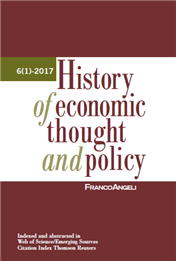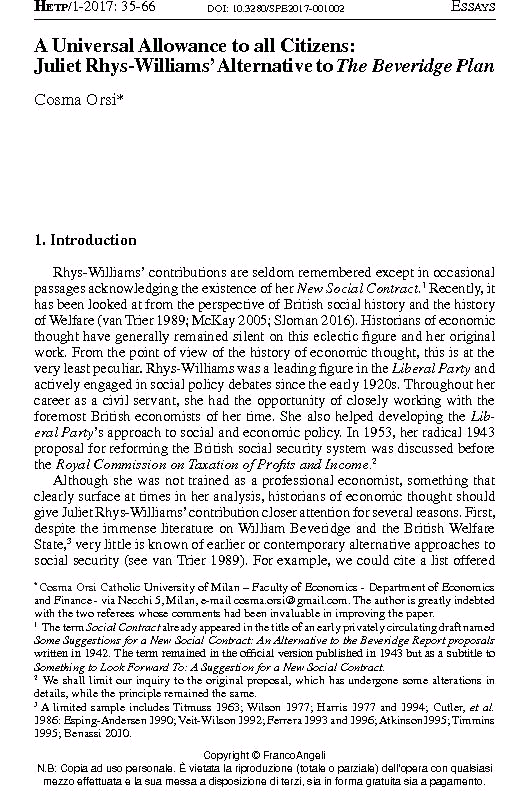A Universal Allowance to all Citizens : Juliet Rhys-Williams' Alternative to The Beveridge Plan
35-66 p.
Studying the social and economic ideas underpinning political debates offers a deeper understanding of policy decision-making and institutional change. According to a well-established tradition, policies "can be regarded as embodying ideas about society, the economy, the state, citizens and relations between these. They embody views about justice, equality and individual responsibility" (Alcock et. al. 2000: 184). With this in mind, we shall investigate Lady Juliet Rhys-Williams' critical reflections on the Beveridge Report and the alternative proposal she presented in Something to Look Forward to (1943).
In this book, she elaborated an integrated approach to social security and income tax aimed at providing "complete security to those classes, especially the independent workers, widows and spinsters, who are not adequately covered by the Beveridge scheme" (Rhys-Williams 1943: vii). At the very heart of her social vision was the idea of distributing a universal allowance (basic income system) to all British citizens (children included). The rationale underpinning Rhys-Williams' basic income system was the recognition that the problem afflicting British society was the ill-distribution of wealth, that hindered economic growth and prevented the attainment of full employment. [Publisher's Text].
Fait partie de
History of Economic Thought and Policy : 1, 2017-
Articles du même numéro (disponibles individuellement)
-
Informations
Code DOI : 10.3280/SPE2017-001002
ISSN: 2280-188X
KEYWORDS
- Rhys-Williams, Beveridge, Basic income system



